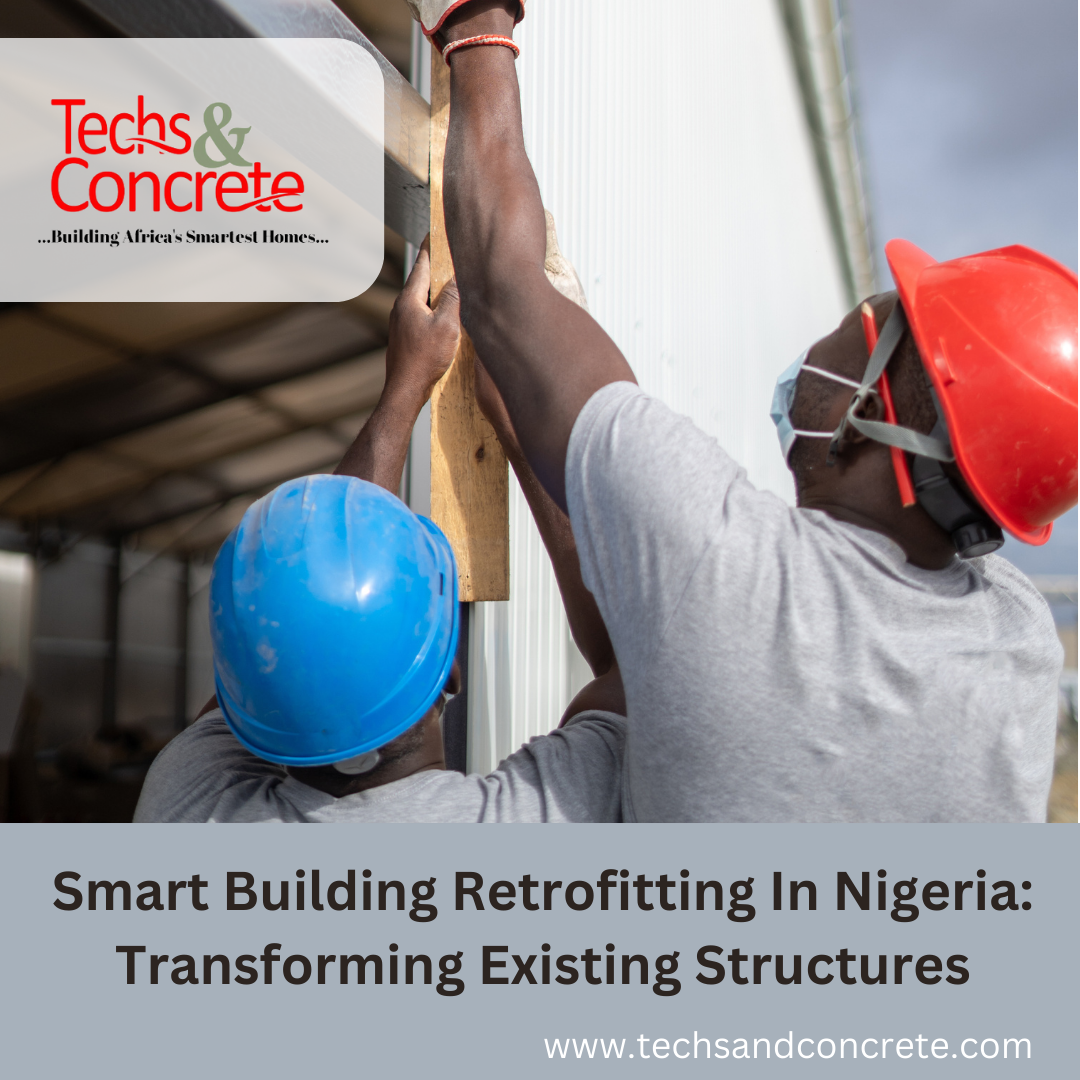
As Nigeria continues to have massive rapid rural- urban migration and population growth been at an exponential rate, the need for energy-efficient and sustainable buildings has become increasingly important. Retrofitting existing structures with smart building technologies presents an opportunity to enhance energy efficiency, reduce operational costs, and improve the comfort of home users. In this blog post we explore the concept of smart building retrofitting in Nigeria and how it can transform existing structures for a more sustainable future in the real estate industry.
Retrofitting is the concept of redesigning or reconstructing an existing building to meet a new purpose or increase its structural integrity. This done either by modifying its interior or exterior designs.
Incorporating smart building technologies in Nigeria building is a new wave in the real estate industry. The country's existing building stock is characterized by outdated infrastructure, inadequate insulation, and inefficient energy systems. Smart building retrofitting offers a viable solution to address these challenges by integrating advanced technologies to optimize energy usage and enhance building performance.
Key Benefits of Smart Building Retrofitting:
.1 Energy Efficiency: Retrofitting existing structures with smart technologies can significantly reduce energy consumption. Incorporating advanced sensors, smart thermostats, and automated lighting systems will enable precise control over energy usage in these buildings, leading to substantial energy savings and lower utility bills.
2 Cost Savings: Smart building retrofitting can result in substantial cost savings for building owners and occupants if handled by professionals in the industry. A Reduction in energy consumption will overtime translate into lower operational expenses, creating a more financially sustainable model in the future.
2.3 Enhanced Occupant Comfort: Smart building technologies inclusion into building allows for better control over indoor environmental conditions. Features like the automated temperature regulation, occupancy sensors, adaptive lighting systems and voice activated gadgets create a more comfortable, relaxed and productive environment for homeowners.
2.4 Sustainable Practices: Retrofitting of an existing building is in sync with sustainable practices of the industry, as it reduces the demand for new construction and extends the lifespan of existing structures. Also, the inclusion of renewable energy sources, such as solar panels and efficient HVAC systems, smart retrofitting contributes to a greener and more sustainable future for the real estate industry in Nigeria.
However, the inclusion and Successful implementation of smart building retrofitting in Nigeria requires addressing several challenges. These include lack of awareness in the society, availability of expertise, cost of initial investment and compatibility issues with the already existing infrastructure. Collaboration among government and regulatory bodies, building owners, technology providers, and financial institutions are crucial to overcome these challenges and ensure a smooth transition towards smart, sustainable buildings.
In Conclusion, Smart building retrofitting offers a transformative solution for Nigeria's existing building and real estate industry, making these building more energy-efficient, cost-effective, and sustainable. By embracing advanced technologies, integrating renewable energy sources to building and optimizing building systems. The real estate industry can pave the way for a greener and smarter built environment.
Image Source: www.Freepik.com

Comments